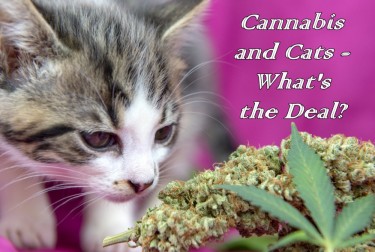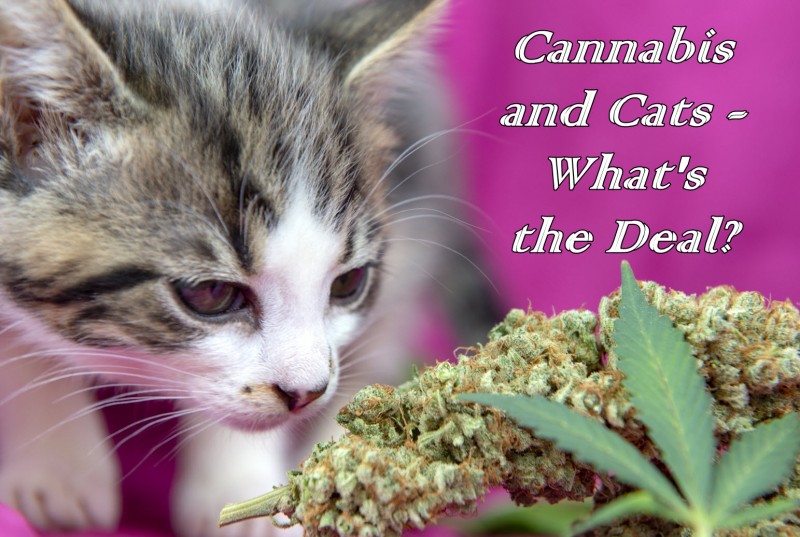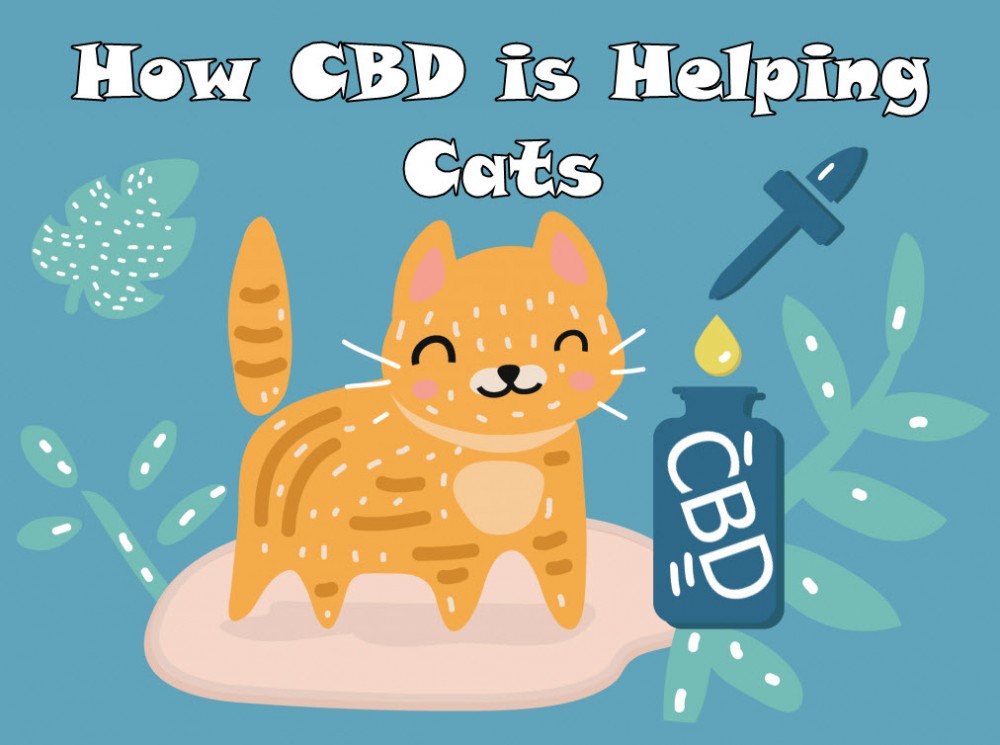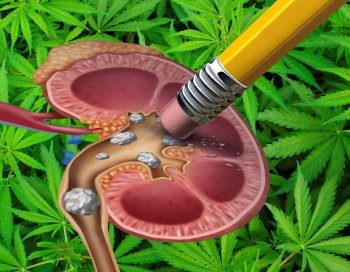Cannabis and Cats - What's the Deal?

Ever had a pet that became more than just a pet but a significant part of your life? If yes, you'll concur that such bonds are unbreakable. The relationship between pets and pet owners is one that can't be explained, the majority of pet owners will go the distance to give their animals the best, and recently that has been cannabis. But, is cannabis good for your cat? Read on to find out.
The internet is littered with information on how weed can affect children and dogs, with owners given safety tips, 'how to' guides, and so on, but what about cats?
Do you have a beloved cat that takes cannabis (in any form), or has been exposed to excessive amounts of cannabis. This article is for you! In here, you'll learn all you need to know about how cannabis interacts with your cat's body system and how you can ensure your cat is protected at all times.
How cannabis affects cats
Just as it is with other drugs, the impact of cannabis stems from a chemical reaction. When the drug enters the cat's body through inhalation or ingestion, it binds with neuro-receptors inside the brain, thus changing its regular neurotransmitter function. The THC then interacts with the neurotransmitters like serotonin and dopamine.
Since whatever enters the body will exit, THC, being a lipid-soluble substance is stored in the cat's liver, brain, and kidneys before it is eliminated. When held, the cat may start to show some symptoms until the THC is eliminated through the kidney.
The toxicity of cannabis for cats
Cannabis has a higher margin of safety in human beings, however, the same can't be said for most pets. Just like in humans, the effects of cannabis on each pet varies. A small amount of cannabis can affect a cat more than it does a dog and vice versa, so there are no "Official" safe zones. It should be noted that individual differences in pets such as health status, body size, and even age can affect the level of toxicity. Each cat is unique so what works for your cat may not work for someone else's cat.
It's dangerous to blow smoke on cats.
The clear statement to note here is that you shouldn't blow cannabis smoke at your cat as it causes respiratory challenges especially in cats diagnosed with asthma or other illnesses. However, it should be noted that cats can ingest cannabis in several ways, including nibbling on joints found on the floor or stealing bits and pieces of infused cannabis edibles when you're not watching.
The signs of cannabis intoxication in cats
Most of the signs of intoxication from cats due to excessive cannabis consumption are neurological, but there are some physical signs you can look out for, including the cat being wobbly. The cat may also be uncoordinated, too vocal, disoriented, and hyperactive. You will see the cat's pupils dilating if you look closely, thus giving them a wild eye look as they drool and vomit. Tremors and seizures may also occur, and while some of these side effects are worrisome, they may only make the pet uncomfortable for a while until you take the cat to a vet.
If your cat ingest an excessive amount of cannabis, you will observe the pet manifesting symptoms such as dilated pupils, extreme sleepiness, hypersalivation, and even low blood pressure. The cat may also vomit, show signs of agitation, and slow heart rate, while in dire cases, the cat will go into a coma.
These risks highlights the importance of caution when giving your cat cannabis. It should also be noted that the same precautions should be observed when smoking cannabis in a room with your cat.
If you use cannabis (especially if you smoke it) and observe these symptoms in your cat, you should seek emergency veterinary help. You will have to tell the vet how much cannabis you think the cat inhaled and the form in which it was consumed.
The level of intoxication can be diagnosed based on clinical signs and an accurate portrayal of what happened. If the toxicity occurred immediately after ingestion, the veterinarian will induce vomiting to stop the further absorption of toxins. It should be noted that the mode of exposure is essential because a cat that ingested an excessive amount of cannabis will be treated differently than one who inhaled it.
Treatment for excessive cannabis ingestion
The treatment for a cat that ingested excessive amounts of cannabis entails decontamination. This must be carefully done to avoid causing more harm than good. The cat's stomach should not be pumped as it may lead to choking which will cause the cat to vomit profusely.
The vet will also issue medications and supportive care to regulate the pet's heart rate and body temperature.
During recovery, the pet may still be lethargic with loss of appetite; IV Fluids can be introduced to prevent dehydration and support the blood pressure.
Some vets may issue anti-anxiety drugs that will curtail post-recovery agitation.
Confinement in a safe and comfortable space is also essential to avoid self-trauma.
As the cat recovers, noise should be kept to the barest minimum.
Cannabis intoxication is not always labeled "fatal" as the minimum lethal dose in pets is pretty high. Death has only being recorded when it entails very high concentrated cannabis that is ingested multiple times. And it's important to state that there hasn't been many extreme or severe cases.
The most popular and loved cannabinoid is cannabinol (CBD), so would this be good for cats? There are unclear conclusions about CBD being good enough for cats because while there are some anecdotal evidence to show that CBD may be effective in treating some symptoms in cats, there is not enough scientific evidence.
Although there are lots of first-hand accounts from pet owners on how cannabis has been beneficial for their cats, there isn't enough substantial scientific evidence. However, it should be noted that extensive works of research are being conducted on the subject so before long a reasonable conclusion on the effects of cannabis on cats, detailed guidelines on the best dosages and means of consumption will be available.
It should be noted that despite the current state of scientific validation, a lot of cannabis enthusiasts are firm believers so some give their pets CBD when necessary and the majority have uttered nothing but good things about CBD's effects.
The importance of caution can't be overemphasized, you must be careful with how the pet is exposed to cannabis in any form to reduce the risk of excessive consumption.
Always keep cannabis (medical and recreational) out of reach of the cat by using high cabinet storage facilities in your home.
Use cannabis (when smoking) far away from the cats; and keep pets in a ventilated room, so the smoke doesn't get to them. As we all know, cats can perceive sweet-smelling stuff from candies to chips and even cannabis from a mile away.
Bottom line
While the benefits of cannabis are evident for the blind to see, caution is still advised. If you observe that your cat is behaving strangely and you suspect exposure to an excessive amount of cannabis, please call your vet immediately.
CBD AND CATS, READ MORE..
CBD FOR CATS, IS IT A YES OR A NO, READ MORE!








